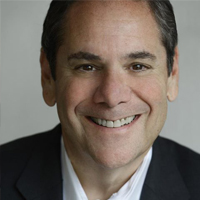Editor’s note: Michael Kay is a columnist with Rethinking65. Read more of his articles here.

I left the advisory world on December 31, 2021. I passed the torch of my fee-only financial life planning firm to my young partner, Jeremy Levinn. During my decades of working with clients, committed to helping them navigate the minefield of financial decision, I felt blessed to be in the position to make a real different in their lives — especially in areas like building financial security for life after career.
The transition from my work life was filled with optimism as I looked at the buffet of possibilities in front of me. I was excited by the prospect of new explorations, and new opportunities to learn and grow. But, I discovered, it was not a straight line.
Best Laid Plans – and a Wall
I started the new year focused on cleaning, sorting and organizing. I was in the midst of several learning platforms, which I will discuss later. And I had devoted a great deal of time and energy to consider what my life would look like when I wasn’t running a business, meeting with clients and mentoring my colleagues.
But approximately five months in, I hit the wall. I didn’t know why, but I did know I was in the throes of depression. I felt a deep loss I couldn’t name. I wasn’t attached to my title, my designations, or my routine, yet, I felt lost and untethered.
I wrote about my feelings in my blog, bleeding all over the page for the world (or at least the subscribers) to read. I wasn’t ashamed to show my weakness, hoping it might help other men who were feeling loss. I discovered that I hadn’t devoted any time or attention to mourning or grieving the loss of what I had created. With the love and support of my family and the men who took the time to write notes of support, I finally emerged.
In Good Company
As a financial life planner, I witnessed the difficulty that many men experienced when transitioning from work to retirement. Either they resisted really dealing with the loss of identity (Who am I when I am no longer my job?) or, when asked about anticipated activities during post-work life, they responded, “I’m going to play golf.” Or “I want to travel.” While there’s nothing wrong with either answer, While there’s nothing wrong with either answer, the moment they begin to extrapolate golf or travel into days, weeks, months and years, a blank look overtakes them because they realize they don’t really know how to respond more realistically or deal with this massive shift in their life. The challenge is destabilizing and incomprehensible.
On the other hand, my female clients typically didn’t struggle with mental blocks, lack of insight, or getting stuck on their identities or job titles.
I decided that I could serve men in a way that didn’t involve financial planning or money conversations. I created Chapter X (the name I also give to this stage of our lives after our hard-charged careers) as a forum for real discussions that didn’t involve sports, politics or money. I decided that a natural extension of my work as a financial life planner was coaching. I signed up for two different programs, one through the Tiny Habits® Academy and the other, a nine-month training program that provided life-coaching certification through the Human Potential Institute.
Putting It All Together
During the last decade of my career, I did a good deal of writing. I wrote for Forbes and several other publications, talking about money and values. But as I turned the page on all things financial, the urge to write was still a part of me. I began writing about my experience in retirement and posted it to the Chapter X site (www.michaelfkay.com) and started building a following, mostly of men who were in the same position as me: newly minted retirees. I also setup a monthly Zoom meeting, offering an opportunity for men to talk about their obstacles, progress, concerns and journey. We’ve had conversations about values, legacy, identity — and frankly any topic that isn’t money, politics or sports.
The last piece of the Chapter X puzzle was the podcast. I’d been encouraged to do a podcast during my work life, but I didn’t feel right at that time. But since I always seem to gravitate toward things that push me out of my comfort zone, in retirement I connected with a sound engineer (thank you, Manisha Thakor) and a virtual assistant to start the Chapter X podcast. We’ve now released more than 200 episodes.
Never Stop Learning
I’ve learned so much from my podcast guests — including psychologists, doctors, authors, coaches, trainers, and especially the men who join me to share their journeys. It’s been a great honor to have Richard Eisenberg (Unretirement) join me for multiple updates, as well as Meir Statman, Dr. Thelma Reese, Lewis Richmond, Bruce Feiler, Mike Drak, Parker Palmer, Gregory David Roberts, Connie Zweig, Bradley Schurman, Tony Hixon, Dr. Stephen Sideroff and many other incredible guests.
I’ve learned a great deal from all my interactions since leaving my work life. I have control of my calendar, and I get to do things that bring me joy. For example, through the positive prompting of a friend (who happens to be a world-famous musician and educator), I decided to return to my first love: music.
In my teens, I was a classically trained trumpet player — but I walked away when I figured out that I’d never be “the best.” Fifty years later, I reopened my trumpet case, started taking lessons and began playing with an adult big band. It’s been a blast, but also an important lesson to let go of the idea of perfect and lean into the joy.
I’ve also learned to say no to things that do not bring me joy. For example, I was asked to play with a community concert band. I attended two rehearsals and found the people unfriendly and the music selected not all that interesting. So, I politely stepped away.
Creating a Roadmap for Retirement
Since retirement, I’ve also had many “a-ha” moments. Throughout our lives, we repeatedly move from being novices to achieving mastery. Retirement, like childhood, is simply another phase where we begin again as novices and must work through the process of learning and growth. I’ve devoted a great deal of time thinking about my values and legacy, and how having those firmly in place provides me with a roadmap that I use to navigate my decisions.
Through coaching and discussions, I’ve noticed that many men experience their most limited internal perspective when transitioning away from their careers. While mastering our professions, we are so hyperfocused on what we do and what we know that we tend to lose the perspective of what other possibilities exist beyond where we are at that time. Chapter X, that near-retirement and post-retirement phase, is the time of reassessing, restructuring and letting go. It’s about giving yourself the permission to be more than your job, more than your net worth, more than your accolades.
The challenges of Chapter X include loss of identity, recreating a social network, dealing with feelings of uselessness or irrelevance, absence of a routine, changes in relationships with family, especially spouses, and of course physical and mental aging. As my grandmother used to say, “When I meet God, I’m gonna tell him what he can do with his ‘old age’!”
My Challenge for You
I implore you to listen very closely to what your clients are saying about retirement. Listen for the signs that convey a gap between their imagination and their reality — which could be creating or exacerbating depression. Depression in retirement is a real thing and a major issue for many — the statistics are staggering. According to the CDC/NIH 15% ot 20% of adults over 65 show signs of clinically significant depressive symptoms. Men, particularly those recently retired or lacking social support, fall into the higher end of that range — or above.
I believe my work as a financial life planner was helpful and meaningful to our clients preparing for retirement. However, the need goes beyond the portfolio, beyond the discussions of financial need after the paycheck stops, beyond the tactical decisions of RMDs and Social Security. The need is so much deeper. I encourage you to bring these issues to the front in your discussions with clients. The facts are clear; the challenges are real.
Sure, talking about where to age is important. So is planning out sufficient cash flow to provide financial security. Discussing financial legacy is important, too. But living with meaning and purpose into the post-career years is also vital to the planning process. It might not be within the reasonable purview of your job as financial planner, but you are certainly in a position to help your client move forward in the right direction.
The Light Beyond the Wall
I love this chapter in my life. My time with my wife, children and grandchildren is wonderful. I embrace the challenges, even though it’s not always a straight line. Most of all, I try every day to live in gratitude, laugh more, love more, and help others.
Michael Kay, author of “The Business of Life” and “The Feel Rich Project” joined the financial services industry in 1985, after nearly 10 years as a CPA. He founded Financial Life Focus LLC in Livingston, N.J., in 2001 and transferred ownership to his partner in 2021. Michael has been married to his college sweetheart for 48 years. His Chapter X project is available at www.michaelfkay.com along with his podcasts (Apple, Spotify or wherever you listen). Reach him at mk@michaelfkay.com, on X (@michaelfkay) and on LinkedIn.







